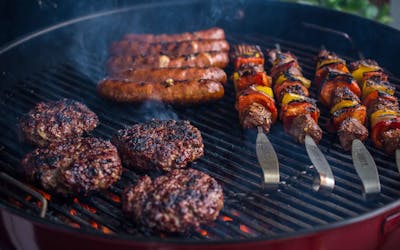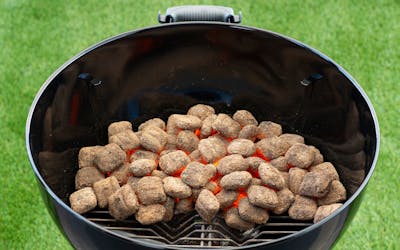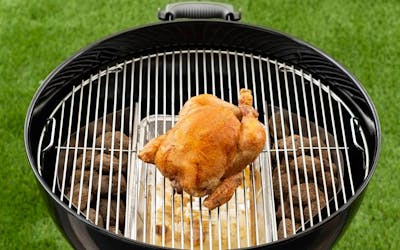Types of Charcoal
Barbecue Fuel
There are three main types of barbecue fuel available on the Australian market: barbecue briquettes, charcoal briquettes, and hardwood lump charcoal. Through years of testing, we’ve learned that choosing the right fuel leads to a wonderful cooking experience.
Barbecue Briquettes
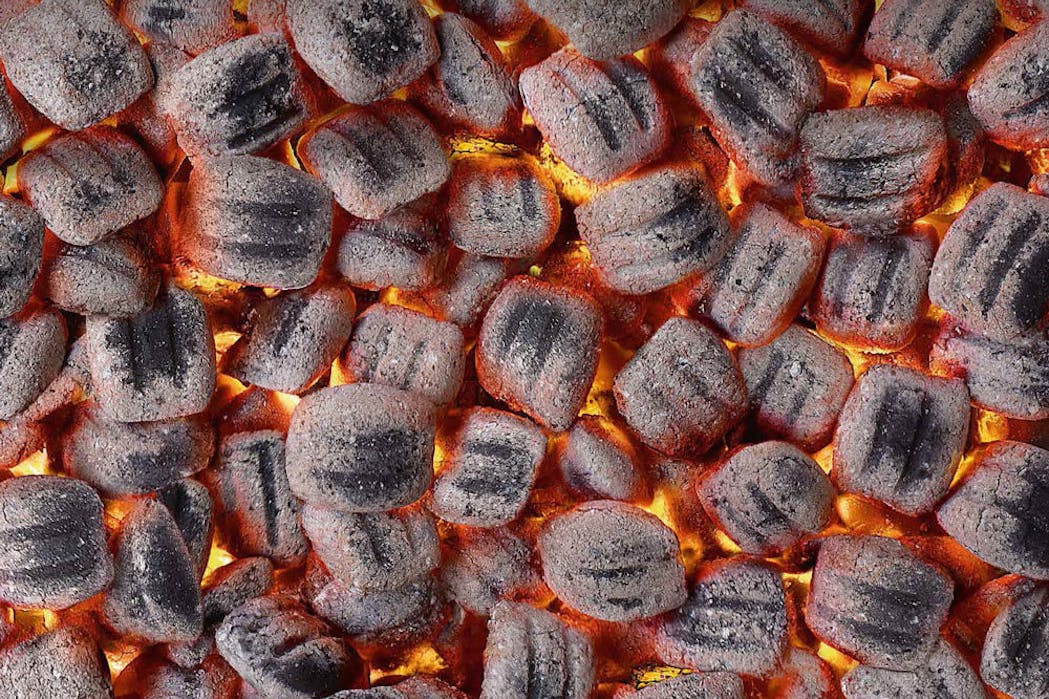
Barbecue briquettes are made from mineral char and may be blended with other ingredients to enable binding and ignition. They are densely packed and pressed into a uniform size to ensure long burning and consistent heat.
Briquettes made with mineral char burn longer (up to 4 hours) than charcoal briquettes and can even be reused.
Some briquettes are coated with an accelerant to help them light faster. If you're using these, ensure they are fully ashed over before adding your food. Additionally, if you're midway through cooking and need more heat, always ensure the additional briquettes are completely lit and ashed over before placing them in your barbecue.
Weber Briquettes are made from all-natural ingredients , including mineral char and natural binders, ensuring they’re safe to start cooking with even when they’re only 80% ashed over—meaning you can make the most of the peak heat. Plus, you can add them directly to your barbecue during cooking without needing to light them beforehand.
Charcoal Briquettes
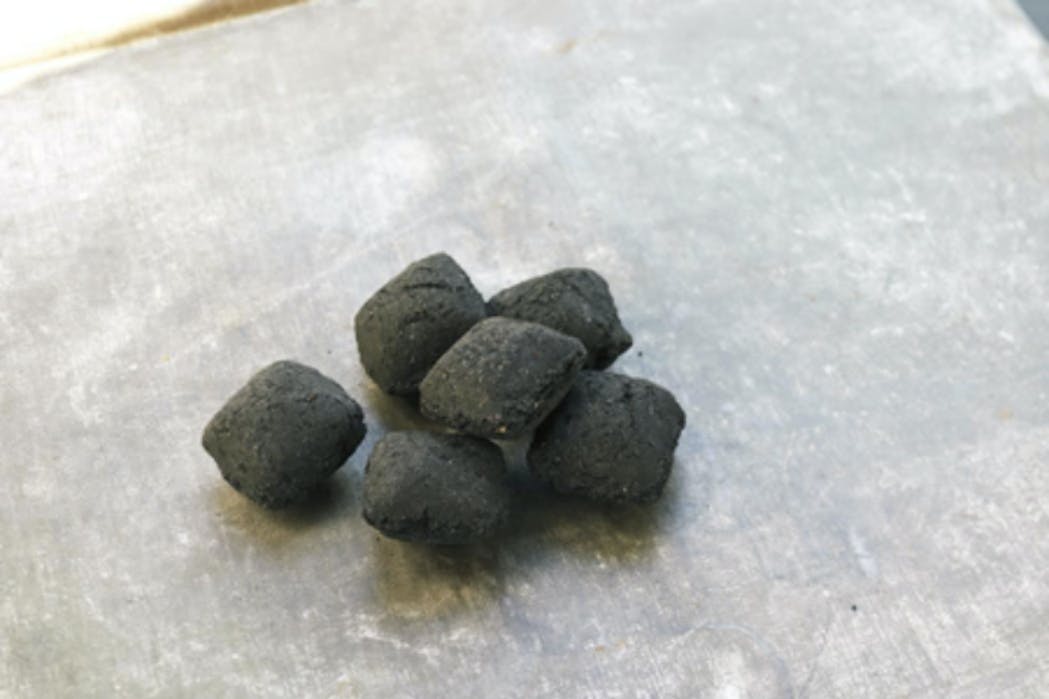
Charcoal briquettes are made from ground charcoal and sometimes include materials such as limestone, clay, and binders. They are compressed into a pillow shape for consistent heat. Charcoal-based briquettes burn faster than barbecue briquettes, meaning you may need to add more fuel to complete your roast. Similarly, coconut shell briquettes are made from carbonised coconut shells, along with binders.
Lump Charcoal
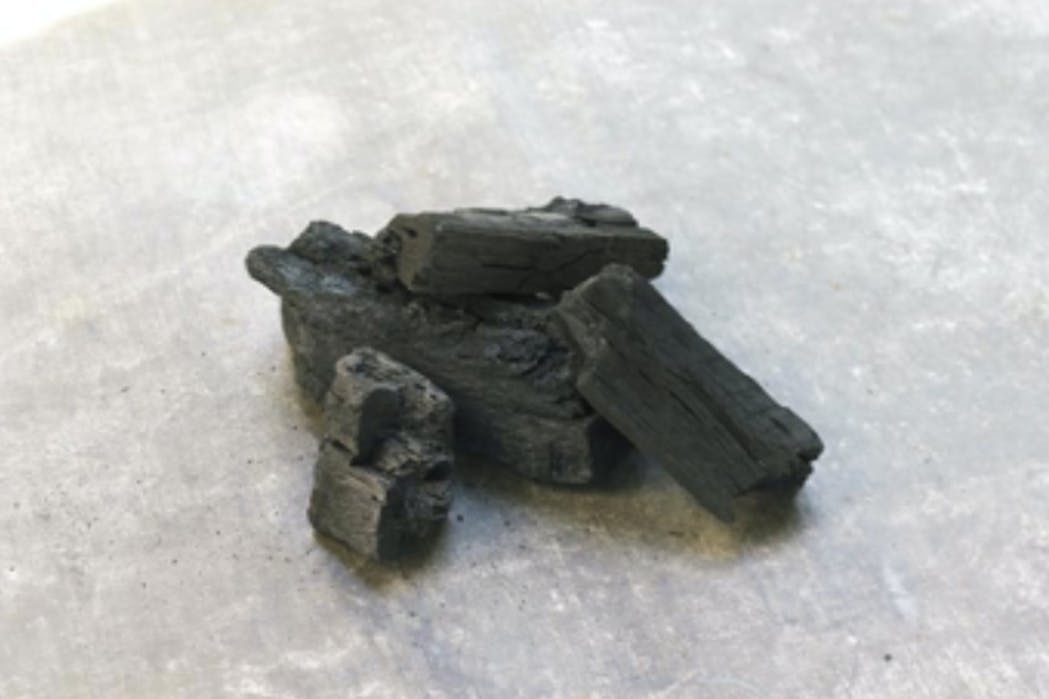
Hardwood lump charcoal has been used for cooking since humans discovered fire, and nothing beats the traditional flavour of a barbecue cooked with natural wood charcoal. Lump charcoal doesn’t provide the longevity that briquettes do, but it lights faster, and its high heat output makes it the ideal fuel for direct cooking and small roasts. Steaks benefit greatly from being cooked over charcoal; the high heat creates the perfect sear on the surface, and the smoke infuses the meat with that unbeatable charcoal flavour.
Top tips
- Check out our Grill Skill guide for the right barbecue briquette quantities. Following the recommended amounts will help you avoid wasting fuel and, more importantly, prevent a cook that's either too cold or too hot, ensuring your food is perfectly cooked every time.
- Chimney starters are fantastic for speeding up the light time for your barbecue briquettes, which means you get cooking sooner!
- A chimney starter isn't necessary for lump charcoal, as it lights quickly on its own. In fact, it can burn so hot and fast that, by the time you pour it onto the charcoal grate, you might miss the peak of its heat.
- As soon as you’ve finished cooking, close both the lid and cooking bowl dampers, cutting off the oxygen to the fire. You may find you can reuse any leftover fuel for your next cook-up.

